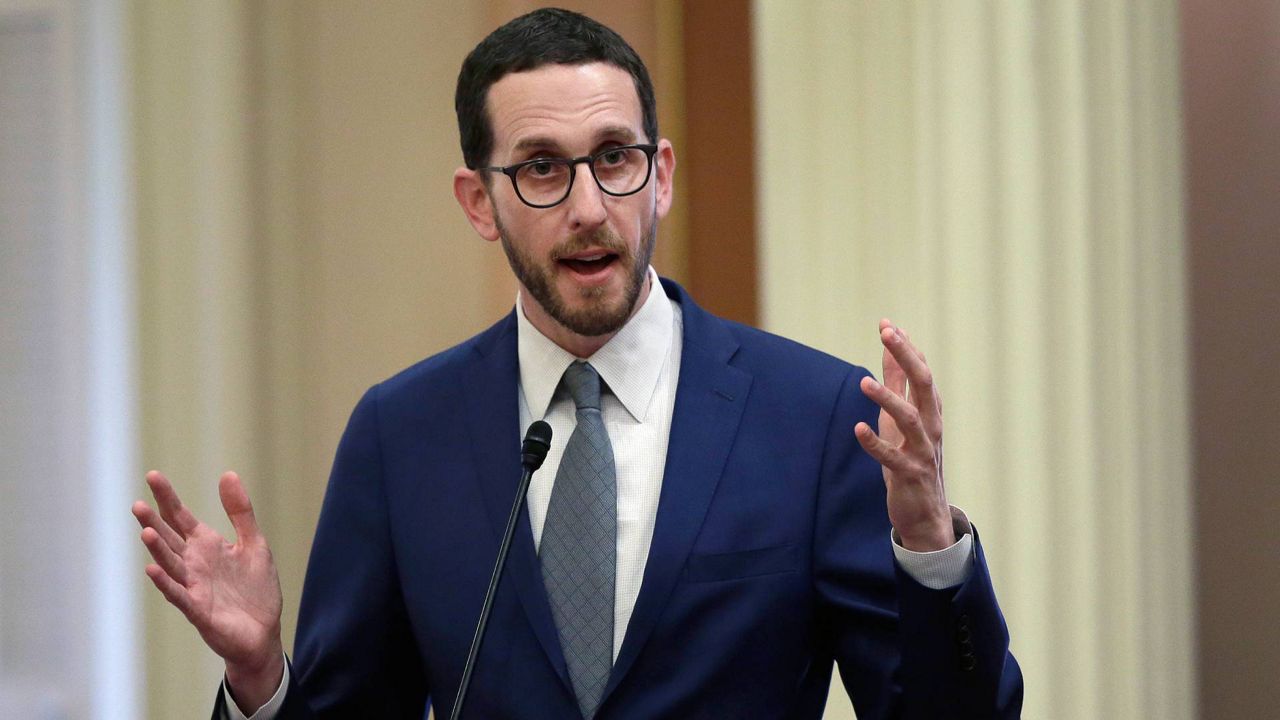SACRAMENTO, Calif. (AP) — A California lawmaker is withdrawing a bill that would have banned some medically unnecessary surgeries on intersex children until they are old enough to participate in the decision.
State Sen. Scott Wiener, a Democrat from San Francisco, has tried for three years to ban some types of surgeries on young children born with intersex characteristics. That refers to people with genitalia, chromosomes or reproductive organs that don't fit typical definitions for male or female bodies, like people born with both ovaries and male genitals or incompletely formed genitals that can be ambiguous.
What You Need To Know
- A California lawmaker is withdrawing a bill that would have banned some medically unnecessary surgeries on intersex children until they are old enough to participate in the decision
- State Sen. Scott Wiener said the bill does not have a viable path forward this year
- The San Francisco Democrat has tried for three years to ban some types of surgeries on children born with intersex characteristics
- Wiener said he is not giving up and will continue to fight for the intersex community
Often, these irreversible surgeries are performed on infants. Wiener's bill would have banned some types of these surgeries until a child was 12 years old and could participate in the decision. But Tuesday, Wiener announced the legislation "does not appear to have a viable path forward."
The bill has been stuck in the Committee on Business, Professions and Economic Development amid opposition from the California Medical Association and some parents who say they should be able to make medical decisions for their children. The bill stalled in committee last year after Wiener rejected some proposed amendments.
"For three years, we've worked to advance legislation, and it's become apparent that we continue to lack the votes to pass a meaningful bill — one that actually protects intersex people — through committee," Wiener said.
The nations of Germany, Colombia and Malta all restrict certain surgeries on intersex children. Two U.S. children's hospitals — one in Chicago and one in Boston — also limit these types of surgeries on children. But so far, no U.S. state has passed a law limiting the surgeries.
"Pausing medically unnecessary genital surgeries until a child is old enough to participate in the decision isn't a radical idea. Rather, it's about basic human dignity," Wiener said. "I'm not giving up, and I stand in solidarity with the intersex community in its fight for bodily autonomy, dignity and choice."



